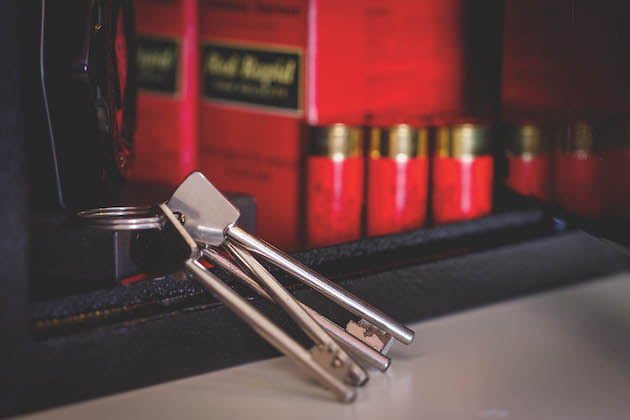There are plenty of situations where bad intentions stitch up honest gun owners, but there are others where they don’t help themselves says Alasdair Mitchell
You hear a lot of stories about gun owners being dropped into the ordure by a disgruntled ex, who then contacts the police and makes fabricated allegations of violence, aggressive behaviour or poor gun security. When facing such claims from a source who has an axe to grind, the police have to make a decision. If they take no action, the potential consequences could be tragic. But if they swoop in and seize the firearms, they might be overreacting to a vexatious complaint. Guess which route they tend to take?
The mere fact that there has been so much media coverage about the fitness to possess firearms means that a complaint about a gun owner is likely to get some traction. This is sometimes exploited by vengeful ex-partners of either sex.
Divorce
I know of an instance when a woman in the throes of divorce rang her husband, who had recently moved out of the marital home, to say that she had found the key to his gun cabinet lying around the house. “I’ve already telephoned the police,” she said. “They’re due here any moment.”
“Well, that’s very interesting,” replied her estranged husband, “because I’ve got the keys to my cabinet here with me. And my guns aren’t in that cabinet anyway. You must have found the keys belonging to our son’s cabinet.” This indeed proved to be the case, but it was too late. Her son was duly interviewed by the police. He was adamant that the keys had been hidden. Sadly, he eventually voluntarily surrendered his certificate. I believe he was less than impressed at being collateral damage in his parents’ battles with each other. (Read more on the law on gun cabinets.)
But domestic violence, or coercive and controlling behaviour, is more common than you might think. After a spell as a volunteer with Citizens Advice, I got fed up with repeatedly hearing things like, “Well, the wife and I had a little row and the police were called, you know how it is.” How do such situations ever become normalised?
Authority
Some years ago, a gun owner in a position of authority repeatedly threatened subordinates at his workplace, typically while drunk. This was reported to top management, but a senior figure in the company who was himself a gun owner tried to sweep the matter under the carpet. Eventually, after solid corroborating evidence that could no longer be ignored, the aggressive drunkard had his guns removed by the police. I think this would have happened much sooner these days.
And here’s the kicker: years afterwards, in a very different context, one of the senior figures involved in the attempted coverup was himself subjected to a campaign of nasty, anonymous threats. The police eventually identified the perpetrators, but the Crown Prosecution Service declined to prosecute. The senior figure complained bitterly about the injustice.




